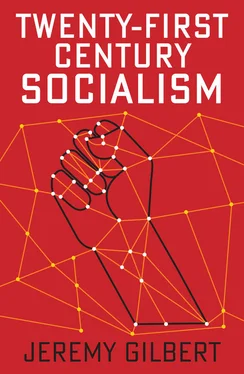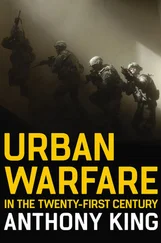The phrase ‘twenty-first-century socialism’ obviously isn’t one that I coined: it was being used in various publications from the late 1990s onwards, and probably much earlier. I used this phrase polemically once or twice before, but the first time I used it as the title for anything, it was at the behest of Craig Gent, who asked me to write a short piece on the topic for Novara Media that in some ways ended up becoming the intellectual kernel of this book. In broader terms, the present volume draws on arguments that I’ve made in earlier, more academic work, such as my books Anticapitalism and Culture and, most importantly, Common Ground . Perhaps more immediately, it draws on commentary that I’ve written for publications such as Soundings , the Guardian, Red Pepper and New Statesman over many years – but above all for Open Democracy. Perhaps most directly it draws on the pamphlet ‘Reclaim Modernity’, which I wrote with Mark Fisher and which was published by the think tank and lobby group Compass in 2014. I’m grateful to all these outlets and to my editors, readers and collaborators there.
More than any of those sources, however, some of the book’s key sections on the nature of capitalism and socialism and on the defining features of recent and contemporary history draw on my many years of teaching undergraduates at the University of East London. Teaching students on degree programmes in cultural studies, sociology, music, media studies, politics, history and English – trying to equip with them with a comprehensive and comprehensible account of how the world works and how it got that way – has often been a challenge, but always a rewarding one. It’s a matter of great regret that most of those degree programmes no longer exist, but the many students who passed through them are all owed a debt of gratitude for helping me to shape and hone much of the account and analysis offered here. So are my colleagues at the Centre for Cultural Studies Research at UEL, which thankfully persists in its commitment to public discussion, freed education and political analysis as well as to exploring the boundaries of cultural studies and cultural theory.
Above all, of course, like most writers, I owe a permanent debt of gratitude to my immediate friends and family for their ongoing support and inspiration. Jo Littler and our children – Robin and Isla – make every day special and make the future matter more than ever. It would really be impossible to list all the friends and colleagues who contribute to and stimulate my political thinking every day, but over the past few years friends connected to and taking part in the Culture, Power, Politics seminar series, as well as organisations and projects such as Compass, Momentum, The World Transformed, the New Economy Organisers Network and #ACFM have all been crucial sources of insight and interlocution. Many thanks to all of them.
This book proposes that a twenty-first-century socialism is the only reasonable solution to the various crises and problems that the world faces today 1– from social inequality to climate breakdown. In Part I the book sets out to explain what the basic source of those crises and problems is and why ‘socialism’ might be the solution to them. In Part II the book explores in greater detail the specific features and conditions that characterize the world we live in today, from the technological revolution to the capture of our cities by the super-rich. In Part III the book expounds what the specific characteristics of a twenty-first-century socialism would be.
1 1. Couze Venn, After Capital (London: SAGE, 2018).
Part I Capitalism and Socialism
Конец ознакомительного фрагмента.
Текст предоставлен ООО «ЛитРес».
Прочитайте эту книгу целиком, на ЛитРес.
Безопасно оплатить книгу можно банковской картой Visa, MasterCard, Maestro, со счета мобильного телефона, с платежного терминала, в салоне МТС или Связной, через PayPal, WebMoney, Яндекс.Деньги, QIWI Кошелек, бонусными картами или другим удобным Вам способом.












